How Americans released in swap deal engaged in espionage activities in Iran
By Khosro Mokhtari
Iran’s foreign ministry on Thursday issued a statement confirming reports of a prisoner swap deal between Tehran and Washington, which includes the unfreezing of Iranian funds abroad.
“Iran has received the necessary guarantee for the US commitment to its obligations in this regard,” the statement noted, adding that the transfer of funds has always been a priority for the ministry.
Prior to the ministry statement, IRNA cited official sources as saying that five American prisoners will be released from Evin Prison “within the framework of an agreement mediated by a third party.”
The report further said that more than 10 billion dollars of Iran’s frozen assets in South Korea and Iraq will be unblocked under the agreement that was reached following extensive two-year negotiations.
Five prisoners each from Iran and the US will be exchanged under the deal. The exchange, however, will happen only once the money is deposited into Iranian accounts.
Five Iranians who would be freed as part of the swap agreement were jailed for trying to circumvent US sanctions, according to Washington's claims, while five Americans in Iran were booked for espionage.
Late on Thursday, Iran’s deputy foreign minister and nuclear negotiator Ali Bagheri Kani took to X, formerly known as Twitter, to announce that the process of releasing billions of dollars of Iranian assets had commenced.
“Tehran has received the guarantee of Washington's commitments. The release of several Iranians who were illegally detained in America is in this context,” he wrote.
Foreign minister Hossein Amirabdollahian, in a tweet on Saturday, said since the beginning of President Ebrahim Raeisi’s government, dynamic diplomacy was put into action to “obtain the maximum national interests and the rights of the great nation of Iran.”
“In addition to continuing the process of neutralizing illegal sanctions, the path of negotiation and diplomacy was never abandoned. Efforts continue to obtain final results and full realization of Iran's rights,” the top diplomat wrote, in reference to the unblocking of Iranian assets abroad.
Among three American prisoners who will be freed as part of the swap agreement include Emad Shargi, Murad Tahbaz, and Siamak Namazi. The other two have not been publicly identified.
Emad Shargi
Emad Edward Sharqi, who was born in Iran and holds American citizenship, was sentenced to 10 years in prison in January 2021 on charges of espionage and gathering military information.
He entered Iran in 2016 in the guise of a businessman, but the economic activity was actually a cover for his espionage in the military field, especially in the field of transportation and helicopter warfare.
With the help of his accomplices, Sharqi collected information about Iran's helicopter industry. The documents recovered from his possession show his activities were in the field of military espionage, not business or trade as was reported in sections of Western media.
The purpose of these actions was to help the US policymakers implement the sanctions regime against Iran to hit the international supply chain for helicopter spare parts intended for the country.
Sharqi was arrested for the first time in April 2018 and remained in prison until December of that year before he was released on bail. But before the appeals court was held, he planned to escape from Iran.
While staying in a private home, unaware of Iranian intelligence monitoring, he contacted the American spy network and asked them to arrange for him to be secretly transferred abroad.
On the day of the planned escape, he met with a spy aide, removed the SIM card and turned off his cell phone to prevent tracking. After that, they headed to western Tehran's bus terminal where, using a false identity, he bought a ticket to travel to Iran's western border.
Iranian intelligence services deliberately allowed the escape to proceed almost to its planned point, with the aim of discovering and arresting his accomplices.
Sharqi and several others were eventually arrested and convicted under Iranian law.
Murad Tahbaz
Murad Tahbaz, who was born in the United Kingdom and also holds an American passport, was sentenced to 10 years in prison in November 2019 for being the ringleader of a spy network that operated under the guise of environmentalism.
Tahbaz co-founded the Persian Wildlife Heritage Foundation, formally a conservation organization whose primary concern was the endangered Asiatic cheetah which lives mainly in the northern Dasht-e Kavir desert of Iran.
The same geographical area is also home to two of Iran's largest rocket sites, which are under strict surveillance, and long-term observation of the activities of these self-proclaimed environmentalists revealed that they were more interested in those facilities.
Furthermore, monitoring of Tahbaz's contacts revealed that he was in close contact and communicating on a regular basis with American, British and Israeli spy agencies.
The investigation showed that certain individuals involved were misled about the true intent of the project, which was falsely presented in Western media as alleged evidence of collective innocence.
Siamak Namazi
Siamak Namazi was born in Iran and moved to the United States with his wealthy family in the early years of the Islamic Revolution.
In October 2016, Namazi was sentenced to 10 years in prison for espionage and cooperation with the US government and foreign intelligence networks.
At the end of the 1990s, he tried to become an intermediary in making deals between American and Iranian companies, founding the consulting company "Atieh Bahar Consulting" in Tehran.
Namazi's company concluded a gas agreement with the UAE-based company "Crescent Petroleum" on the export of gas to Sharjah, but the project resulted in costs only for the Iranian side and an Emirati lawsuit of $32 billion.
Evidently, it was a well-planned fraud aimed at harming Iranian interests, for which Namazi was rewarded with the position of head of strategic planning at Crescent Petroleum.
Over time, it was revealed that "MIC" was actually a covert network filled with US government employees who later held numerous other anti-Iranian positions.
These include the position of editor-in-chief of the VOA Persian propaganda channel, jobs at the US government's Institute for National Strategic Studies (INSS) at the Pentagon's National Defense University, the Office of Iranian Affairs at the US State Department, etc.
Namazi himself participated in gathering information about the Iranian pharmaceutical network, whose extensive study he presented at the US government's Wilson Center (WWICS).
This activity under the guise of humanitarian work had the purpose of making it easier for American hawks to increase sanctions on Iran, that is, to show them how and where to hit the Iranian pharmaceutical industry.
Namazi was eventually arrested in October 2015.
His father, Iranian-American businessman Baqer Namazi, who had been convicted in Iran on spying charges, was released and allowed to leave the country in October last year on humanitarian grounds.
Namazi, 85, was arrested on February 22, 2016, when he came to Iran on the pretext of visiting his jailed son. He was sentenced to 10 years in prison for “collusion with an enemy state.”
US politicization of cases
The cases pertaining to these American spies were subjected to politicization by the US government, whose official narrative was followed by all Western media organizations, without a single exception.
The legal basis of cases filed against them by the Iranian judiciary was ignored, according to observers, and the same clichéd stories about groundless arrests, show trials and harsh prison conditions were repeated by the US officials and the mainstream media.
According to legal researcher Alireza Sadeghian, Westerners jailed in Iran for spying are often described as “political hostages, businessmen, environmentalists, humanitarians, activists, human rights fighters to generate sympathy for them."
“This American self-righteousness is not questioned in the West, as if the US is an authoritative legal model, not the country with the largest number of prisoners, a far higher incarceration rate and a prison violence rate compared to Iran,” he said the Press TV website, referring to blatant US duplicity and hypocrisy.
To influence public opinion in the West, US media would publish emotional statements from family and lawyers, describing them as “innocents” who were “wrongly framed” by the Iranian authorities.
After the senior Namazi was released last October, Jared Genser, an attorney and pro-bono counsel for the Namazi family, was quoted as saying by PBS that he was “wrongfully held in Iran for more than six-and-a-half years,” disregarding legal merits of the case.
In May 2022, an AFP report stated that Americans and Europeans have been held in Iran “as part of a deliberate policy of hostage-taking to extract concessions from foreign governments.”
‘Hostages & ransom' narratives
Western pundits and so-called rights groups fail to mention Iranians languishing in US prisons, arguing that the Americans are being exchanged for "ransom," which is the illegally frozen Iranian money.
Such rhetoric, according to experts, is reminiscent of the 1979-1981 American manipulations, when the staff of the US embassy in Tehran was detained, according to the Western narrative, due to Washington's refusal to return billions of dollars stored in American banks.
Even at that time, Washington denied its widespread espionage activities in Iran, despite undeniable evidence in the form of discovered equipment and classified documents in the seized embassy.
The American audience was deprived of the true motives of the embassy seizure. The captives were called hostages, and the demand for the return of frozen assets was misrepresented as a ransom, alluding that billions of dollars in frozen funds were US property.
“The claims of Iran randomly arresting American citizens for financial and other benefits is simply false and empirically unproven, as evidenced by the cases of temporary detention of 10 American sailors, three mountaineers, and numerous other examples,” said Mahmoud Mortazavi, a political analyst.
“On the other hand, the released Iranians in the United States were not arrested for espionage but for trying to circumvent US sanctions, i.e. trade for mutual benefit.”
He hastened to add that, unlike American spies in Iran, they did not plan industrial espionage, plant sabotage, assassination of American commanders, or other destructive activities.
Trump admin. asks transportation body to share passenger names in expanded deportation push: Report
UN sounds alarm over record Palestinian displacement, surge in illegal settler attacks in West Bank
Iran emerges as global fertility hub, blending innovation, research and scientific excellence
VIDEO | Can Europe save Ukraine?
VIDEO | EU freezes Russian assets
Iran’s PMI slips 0.8 points to 49.8 in November: ICCIMA
Two US soldiers, interpreter killed in surprise attack in Syria: CENTCOM
VIDEO | Epstein in Africa


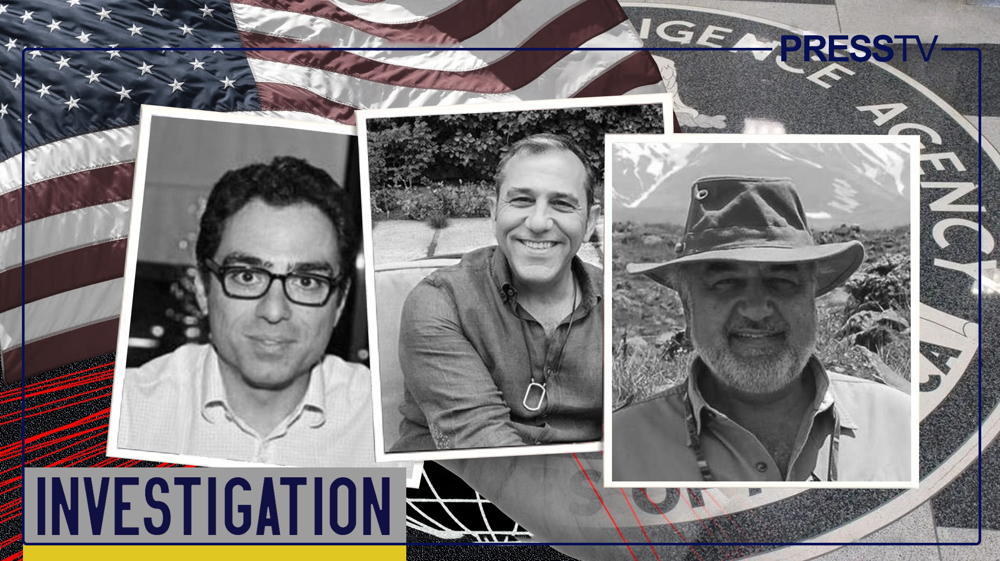


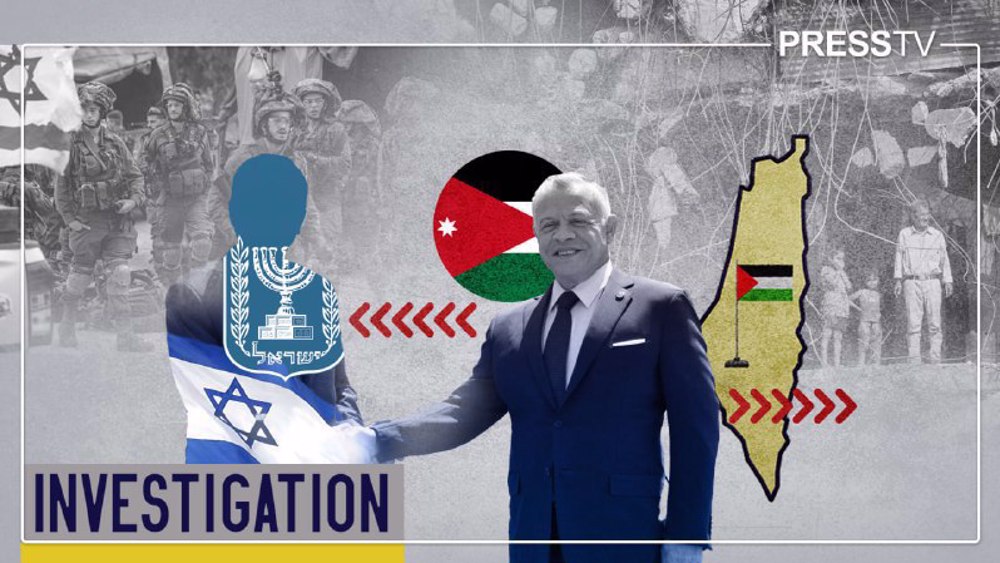



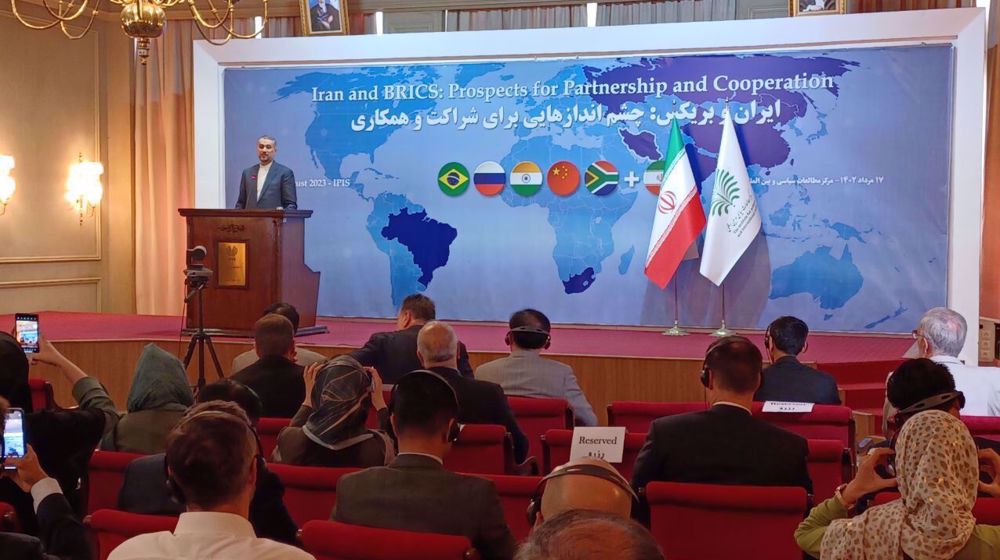
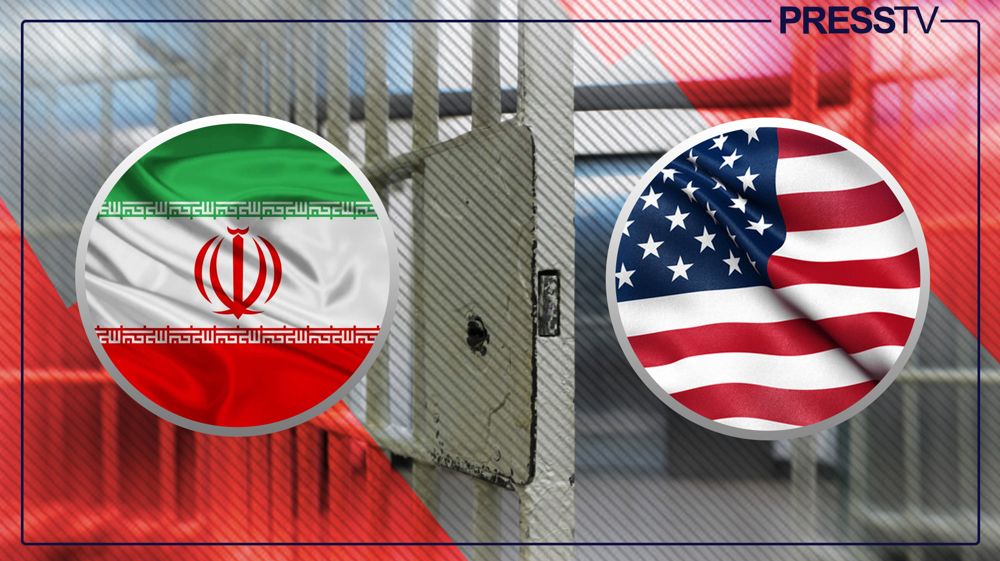

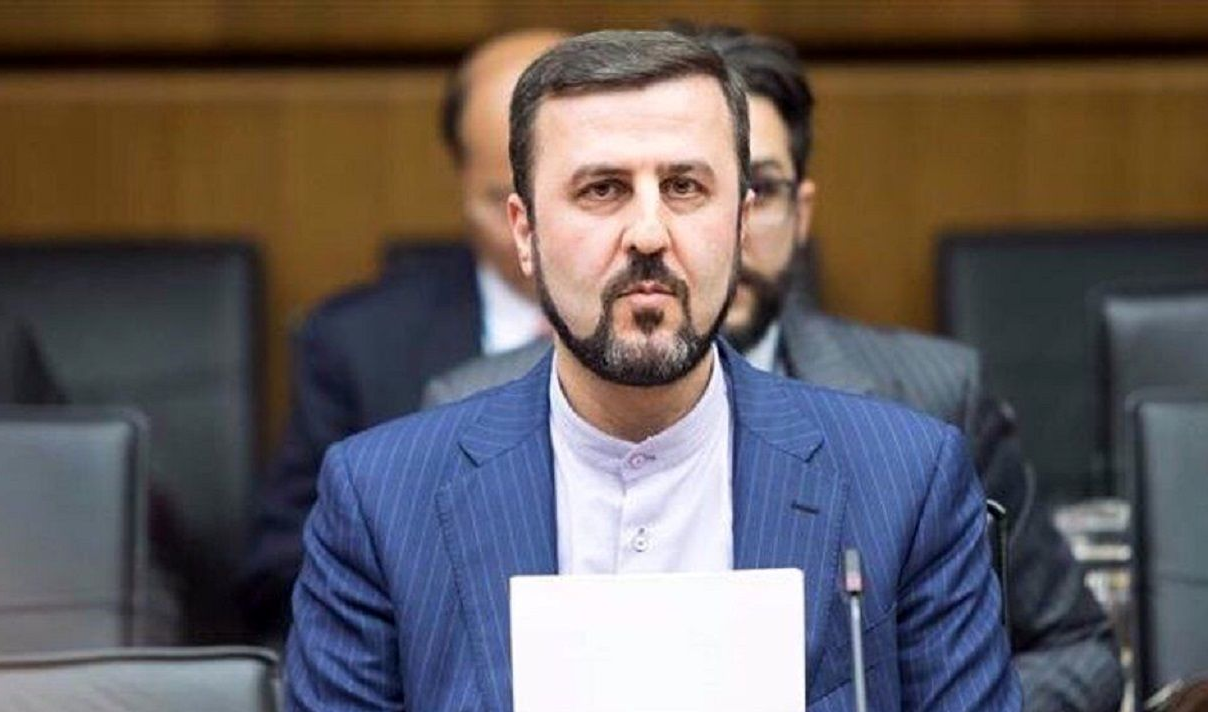
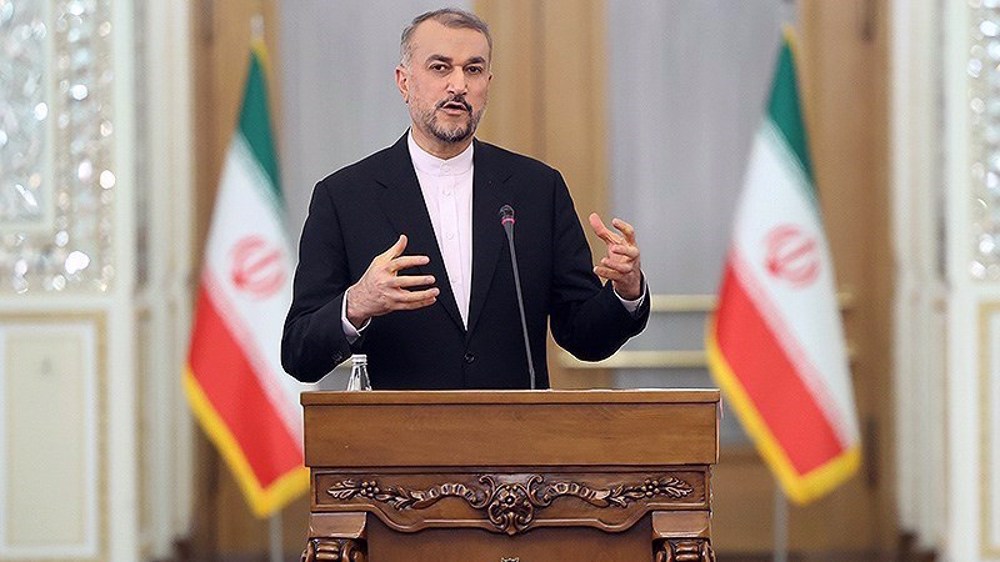

 This makes it easy to access the Press TV website
This makes it easy to access the Press TV website